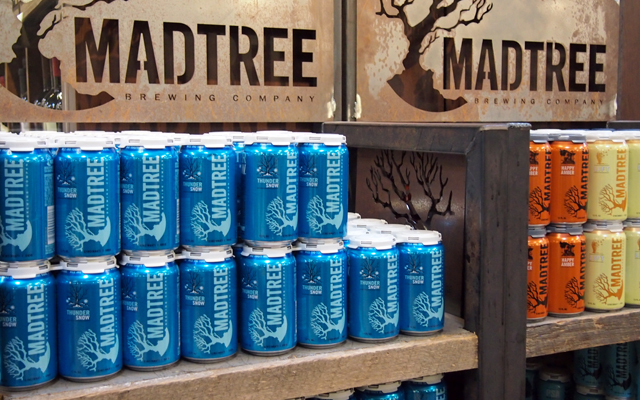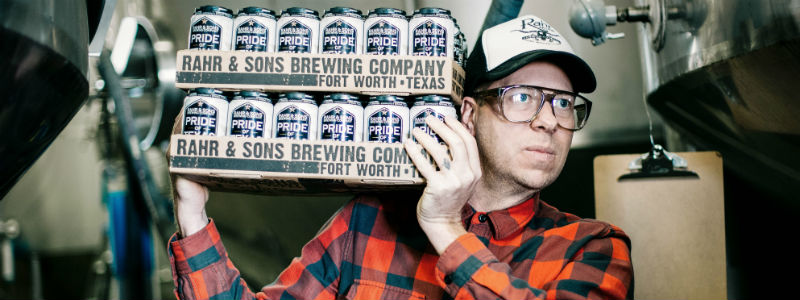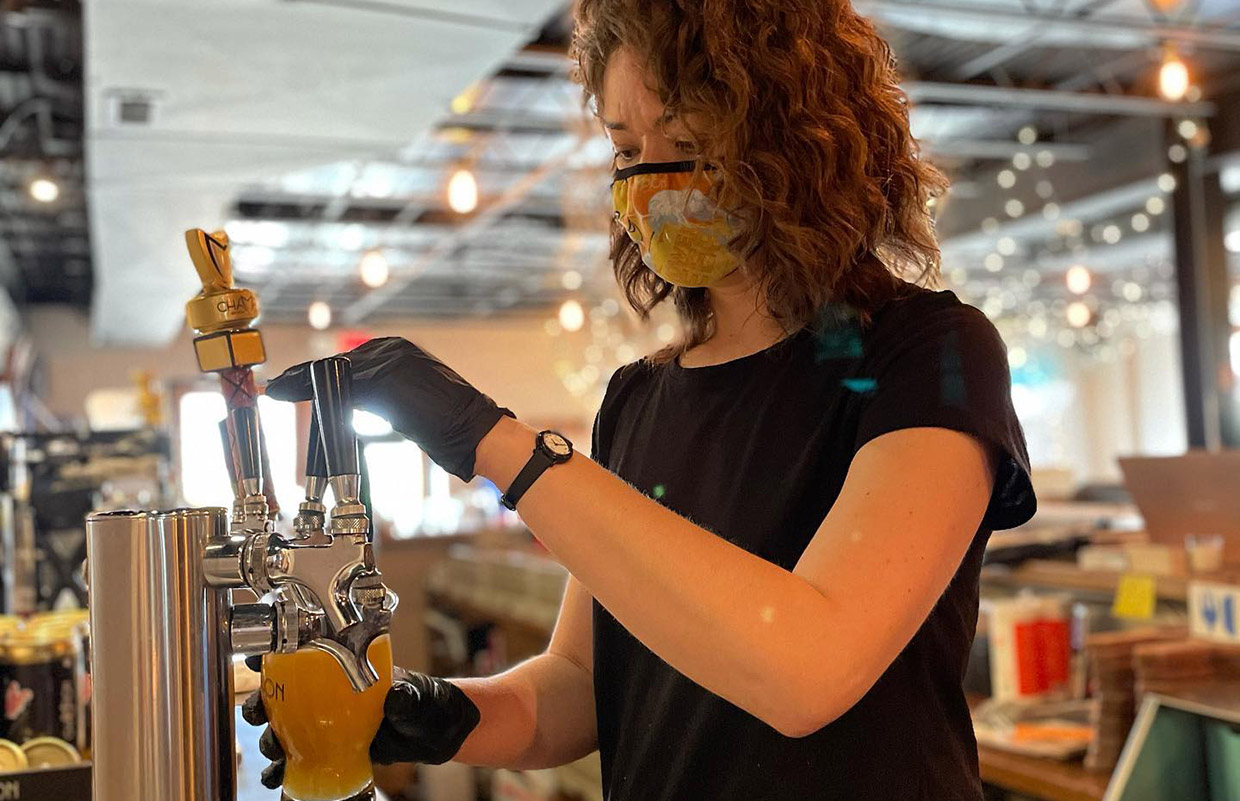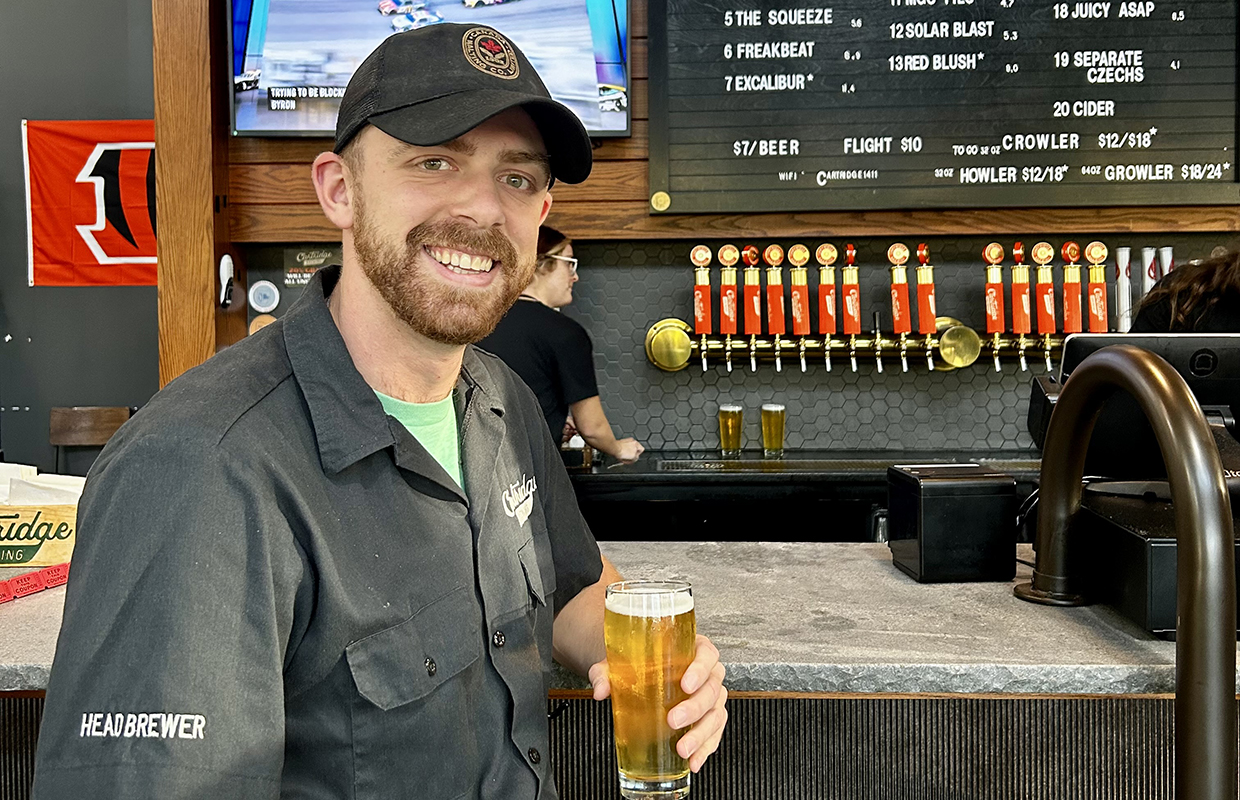
When moving your brewery’s products from draft pours in your taproom to a packaged product available on shelves in off-site retail, it takes testing and diligence on your team’s part to ensure a good experience for consumers.
All of Dust Bowl Brewing‘s packaged products are stamped with the date they are bottled, canned or kegged, explained Sales Manager Scott Chaffee.
“We also date the pallets accordingly, so it makes it more convenient and efficient for the distributor’s warehouse staff to identify product dates,” he said. “We require our distributors to follow “first in, first out” guidelines when stocking and delivering our products.”
When the brewery’s sales staff visit accounts, they inspect the shelves and rotate products if needed.
“If we know we have a lot of product on the shelves that needs to move, we partner with retailers to run promos,” Chaffee said. “If we come across out-of-code product, we co-op costs with our distributors to swap it from the retailer.
“We try to assist our distributors in the amounts to buy – we all have a vested interest in keeping the retailer stocked with our beer, but we also want it to be at the highest quality standards. These are standard practices but essential to keeping the best product on the shelf at all times.”
Surly’s QA/QC Manager Riley Seitz says it is the brewery’s job to have clear and strict guidelines and communication with their distributors.
“We communicate shelf dates and beer storage temperatures to all of our distributors to make sure customers always purchase fresh beer,” she said. “With our sales team out in the market day-in and day-out, we also always have a set of eyes on our beer at off-premise accounts.”
Having an entire staff very quality-minded is key, noted Seitz.
“If any Surly employee runs into out of code beer in the market, we have a streamlined internal form they can fill out to let us know where and when they found the beer, which we then communicate to our sales team to take the necessary action of swapping out old product,” she said.
For most of Indianapolis’ Round Town Brewery, owner Max Schenk said they have had a very small staff and each has worn many, many hats.
“While this is still the case to an extent, we have recently been working toward streamlining some of our systems and condensing each of our focuses to a handful of specific duties rather than everyone doing everything,” she said. noting that the sales staff makes sure to visit each of the brewery’s accounts on a weekly basis.
“We communicate directly with owners, buyers, and wait staff/bartenders in order to monitor the quality of our product — in addition to tasting it, of course,” Schenk said “It’s to ensure that we are doing what we can to help it sell.”




Be the first to comment